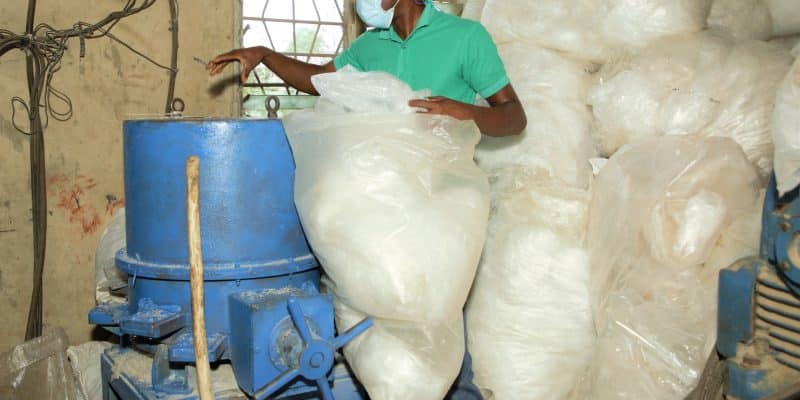In Ghana, the Ministry of the Environment, Science, Technology and Innovation (MESTI) is preparing a law that will oblige producers of plastic packaging to take charge of the waste generated by their activities. The aim is to reduce pollution in the West African country, where the production of plastic waste is estimated at 840,000 tonnes a year, according to the World Economic Forum (WEF).
Ghana is continuing its efforts to promote the sustainable management of plastic waste. The Ghanaian Ministry of the Environment, Science, Technology and Innovation (MESTI) is planning to force producers of plastic packaging to take responsibility for the waste generated by their activities. This includes waste produced during the manufacturing process, as well as waste dumped on the streets by consumers.
The law, due to be enacted shortly, will replace the current voluntary system and make the principle of Extended Producer Responsibility (EPR) mandatory in Ghana. Under this principle, any company that produces waste must be responsible for it.
In Ghana, this responsibility will have to take the form of setting up collection and recycling centres for used plastics. The aim is to achieve higher levels of collection and recycling with a view to eliminating plastic from the streets altogether, “and we are counting on legal support to achieve this”, explains Lydia Essuah, Mesti’s Director of Policy, Planning, Monitoring and Evaluation. “Currently in Ghana, some 120 companies manufacture more than 52,000 tonnes of plastics a year,” she adds.
Read Also –
In addition to reducing pollution, the promulgation of the new legal framework aimed at obliging companies that use plastic packaging to assume their share of responsibility for the collection and recycling of plastic waste will also help to improve the recycling sector in Ghana. According to the World Economic Forum (WEF), of the nearly 840,000 tonnes of plastic waste produced each year in Ghana, barely 9.5% is collected for recycling.
Inès Magoum






